Homophobia High: Why Education and Mutual Respect Are Critical to the Cause
Have you ever looked at someone and decided you didn’t like them before even talking to them? Are you not even giving them a chance to speak for themselves on what they like or might have in common with you? I’m sure we have all done this at one point or another, for a myriad of reasons. Many of them may be for something involving their physical appearance or what clothes they are wearing. Maybe you didn’t like their haircut or thought their outfit was ugly. It is normal human behavior to find people that you think you might fit in with, to find a clique where your interests can be appreciated and discussed with respect.
Unfortunately, the human race is also capable of downgrading others by jumping to conclusions about who the person is, and immediately discarding them for more bigoted reasons. Someone may assume that because I’m white, I can’t dance. Someone else may assume that because I was born in a Christian home and was homeschooled, I won’t be adapted to society and common pop culture. One major predicament that evolved from this mindset is people also making those assumptions about sexuality. If someone has feminine characteristics but identifies as a cisgender male, one might assume that he is gay. If a cisgender female has masculine traits or loves sports and hanging out with guys, one may assume she is a lesbian. What’s funny is, often the people who are least assumed to be members of the LGBTQ+ community are the ones who are actually a part of it.
Some people don’t do any actual thinking before jumping to these kinds of conclusions, often leaving others hurt, frustrated, confused, or belittled. There has been a global, but specifically territorial stride in LGBTQ+ rights and recognition in the past decade. Before the June 26, 2015 U.S. Supreme Court decision that the Fourteenth Amendment requires all states to grant same-sex marriages and recognize same-sex marriages granted in other states, gay marriage still wasn’t legalized in many parts of the country.
Generations have been stuck on ideas, specifically, those being that gay is wrong, shameful, perverted, sinful, and disrespectful toward your family. Many different cultures have this ingrained in their belief systems, common ideologies, and religions. So how did it all start? Where did the first domino fall that caused all the hate, bigotry, and close-mindedness? The answer is simple: the minority was targeted. Only an estimated 5% of the world’s population is believed to be lesbian, gay, or bisexual, with a much smaller percentage being transgender.
How could a single person, in a group of twenty, ever make an impact when people are talking about how “gay people are disgusting” or saying “I’d rather never marry than have a gay son!” How is that one person able to stand up for themselves? For the longest time, they simply didn’t. They sat, and endured the hateful comments from everyone that were constantly hurled at them, and often hid their true identities to protect their reputations and their social lives in general. For the longest time, being gay meant you had lost all of the things humans find pleasurable in life, specifically love. Love is the thing that keeps many of us going, and keeps us motivated in life. When you take away love, what is life? So, because some who were gay couldn’t date openly, in some cases, it was done in secret. They searched for that someone, somewhere, who was just like them.
One way in which students at this (and many other) schools are striving to quell the discrimination against LGBTQ+ teenagers is the Pride Club, which has been around for more than a few years now. This club offers a safe haven for teenagers to express their feelings openly, without fear of disapproval or discrimination. Not everyone here is supportive of gay and lesbian teenagers, as is the case with almost any school you go to, but it’s safe to say that most of the students and teachers here are supportive of LGBTQ+ pupils. The fact that our school has an incredibly diverse population means many in our community already understand what it is like to be the object of stereotyping and discrimination.
Many of the students and teachers at Osbourn have opinions on how homophobia is handled. Some students believe that the issue isn’t acknowledged at all. “Personally, I’ve seen homophobia in many different forms here at Osbourn– sometimes it’s overt, but sometimes it’s as simple as a passing comment,” said senior Logan Monhollen. “The issue is not only how widespread it seems to be, but how it’s handled– homophobia is just treated alongside bullying as if they’re the same, but it’s a lot more insidious and needs a much more prioritized stance from the staff,” he continued.
Some LGBTQ+ students feel like those around them seem to not acknowledge the topic of homophobia at all, specifically the habit of describing something as “gay” if it is bad or lesser than. “I have experienced homophobia a lot. I was referred to with an obvious slur at one point and told multiple teachers about it, but the student never really got in trouble for it. I hear people use the word gay as an insult or a derogatory term. It’s a good thing for there to be so many pride flags around the school because it shows that a lot of people support the LGBTQ+ community,” said freshman Kai Johnson.
Some don’t necessarily think the use of “gay” as slang for bad is necessarily evil, but just inappropriate based on how it is used. Hailey Hakenson, a senior, generally considers it along these lines: “I think it depends on the context in which the slang is used. In the given example of ‘that’s so gay,’ I feel as though it’s just outdated and rude in today’s society. Not only does it feel strange within our growing LGBTQ+ community, but it doesn’t even hold the same dread that it used to bring to marginalized groups. It just feels off whenever you hear it, I guess. However, words reclaimed by the groups they originally demonized is a whole other story.”
Many teachers at Osbourn are much happier with how homophobia is handled nowadays, compared to when they were in high school. “I’ve experienced it from the outside looking in. When I was in high school, the LGBTQ+ community wasn’t as present, and back then, it was very rare for people to be openly homosexual or LGBTQ+,” said Mr. Deniega.
Another teacher, Mr. Kite, who teaches theater, agrees with this perspective but thinks there is still work to be done. “Homophobia has certainly changed forms and has become less acceptable and direct over time, but as with all forms of hate, it never seems to truly go away. It morphs into different, just as insidious monsters. Education is our primary tool against homophobia. The acknowledgment and celebration of LGBTQ+ people are vital to combating both external and internal homophobia. As a theater teacher, I am focused on the power of story and its ability to affect empathy and change. I haven’t been at Osbourn long enough to truly grasp the breadth of homophobia here, but I do know there’s a healthy population of teachers that are supportive of our LGBTQ+ population.”
Some students believe that they personally are making the right steps moving forward and feel other people should too. “Personally, I think homophobia is becoming less prominent than it used to be, but I think people still need to be aware. If people respected each other, it would be less of an issue. If people didn’t discriminate against others and worried more about themselves, we could build a better community,” said Senior Class President Maya Litchfield. Fellow senior Riley Mostoller added, “I just feel like people should be able to do what they want to do, and not be judged for it.”
I can’t express enough how grateful I am to be alive today, where gay marriage is allowed and you can walk freely, out in the open with your partner of the same sex without being publicly ridiculed, thrown out of businesses, or never hired for a job. Although instances like these still do happen in America, they have been minimalized in recent years due to the protection of rights under the laws of the United States.
However, in many countries around the world, being yourself is still illegal. Imagine a world where you had no love and weren’t able to be yourself. For once, I wish straight people could experience it, because, as Lady Gaga once said, until it happens to you, you won’t know how it really feels.
As a gay person who grew up in a Christian religious home, and who knew he was gay since the age of thirteen, I can definitely say it is not a pleasant thing to go through. Nobody, I think, in the history of humanity would ever choose to be gay. No one wants to be in the minority. It’s just the way I am. If I could change it, in the beginning, I would have. In the end, however, I can say I’m thankful for the gift God has given me that some people may call a curse.
All the pain, all the nights of loneliness and self-loathing, and all the nightmares and anxiety about what will happen in the future have made me one of the strongest people you have, or will ever meet. I wouldn’t be the same person I am today if I was not gay. In fact, I would likely have a different relationship with my parents, would attend church every Sunday, and would follow everything that was put in front of me, without thinking about it twice.
That didn’t happen. God said “No, Matthew. Your plans aren’t My plans, and I’ve set things in front of you to change you into a better person, and hopefully allow you to change the people around you.”
I can already say that my little brother Benjamin has been affected, as he has already come to love and accept the real me. My parents haven’t and likely will never accept me, but I know that they love me, and having loving parents is something many children across the world will never have the blessing of obtaining.
My life isn’t bad, but it would have been so much easier if people in this world didn’t discriminate, didn’t jump to conclusions, weren’t close-minded, had love and acceptance in their hearts toward everyone, and didn’t belittle others in order to make them feel better about themselves.
If only people weren’t so quick to judge others. Maybe then the world would be a better, more accepting place.
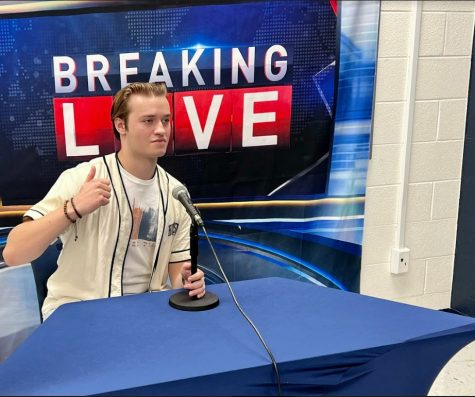
Hi, I'm a senior at Osbourn and this is my first year taking broadcast journalism. I plan to learn to perform better in this class to large amounts of...

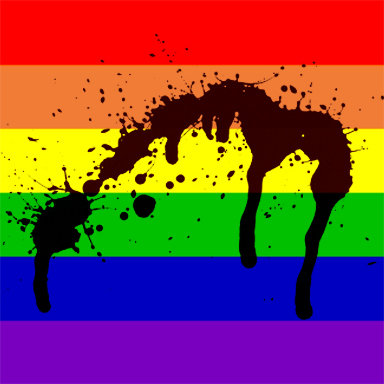
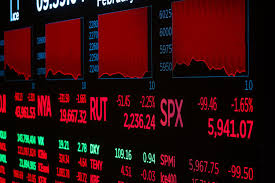
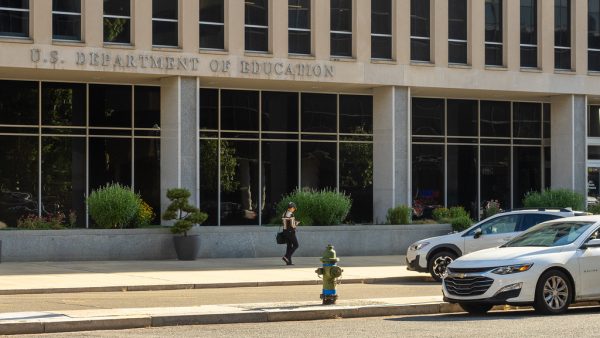

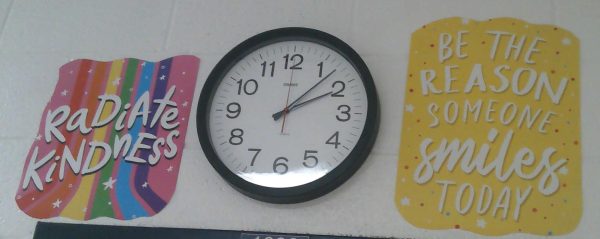
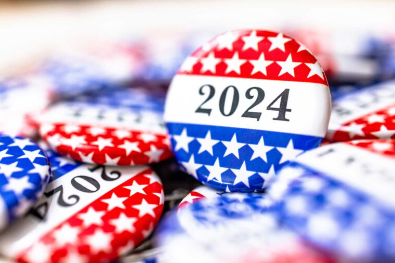

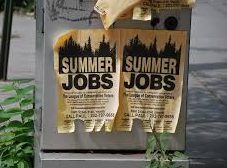

Shelley Zenewicz • Mar 28, 2023 at 11:01 pm
Matthew I am so proud of the person that I have gotten to see you evolve into. You are amazing, always follow your heart.
Ms. Z
Matthew Beach • Apr 12, 2023 at 12:02 pm
Awww! Thank you, I’m so glad that there are still people reading this article on The Talon. I appreciate you and am looking forward to spending this final quarter of high school for me with you!
Jen Johnson • Jan 29, 2023 at 6:32 pm
Matthew,
This article was beautifully written, and your honesty was moving (ask Kai – I cried). My hope is that more and more children experience the acceptance they deserve in their lives from their family, friends, and community.
-Mrs. Johnson (Kai’s mom)
Matthew Beach • Feb 8, 2023 at 9:59 am
Thankyou so much! This was so sweet. I appreciate you and I thank Kai for leading you to the article if they did. It is definitely something that hasn’t been discussed enough and continues to be overshadowed by other issues. Don’t forget to check out my other articles if you’d like!
Sharon Fitzgerald • Jan 23, 2023 at 1:47 pm
Matthew,
I am so proud of your honesty in this article. Remember, there is always support in the school building when you need it. Also, keep speaking your truth and standing up for what you believe is right.
Ms. Fitzgerald
Matthew Beach • Feb 8, 2023 at 10:02 am
Thank you, Ms. Fitzgerald. Sorry it took a minute for me to respond to this. I thank you very much and learned a lot about rightfully discussing controversial topics from being in your class last year. Thank you and I hope to see you around!
vivian • Nov 4, 2022 at 11:21 am
loved the topic. I do go against discrimination towards the LGBTQ community. I believe it is wrong to judge somebody without knowing them I feel that no person should go through this.
Matthew • Nov 7, 2022 at 7:49 am
Thankyou, and I appreciate you in recognizing how wrong it is. Hopefully more people understand better after reading this article.
Kai • Nov 4, 2022 at 7:18 am
I really loved this article, it really showed how though a lot of people think homophobia is such a rare thing, it really still isn’t. I’m one of the lucky few that have supportive parents, but many of my friends don’t and I know the discrimination they face. I know I’ve faced it too and I’m glad that it’s getting addressed and that people are trying to change for the better. This article really showed how important it is to know about things that may not affect you, and I love that.
Matthew • Nov 7, 2022 at 7:58 am
Thankyou so much, and yes, that was the whole point of the article. Trying to educate people on things that might not affect them, because often times if someone isn’t affected at all by something, they don’t care. I wish all the luck to you as you get through your journey, and I hope you really appreciate your parents. Maybe just tell them one day if you haven’t already about how much you appreciate their acceptance and unconditional love.
Tristan • Nov 3, 2022 at 8:44 am
I ABSOLUTELY love this article, Matthew. Because I love how you talked about how people judge gay people without getting to know them or see them for who they are. You showed me how they face so much hate for no reason, it’s not cool for gay people to go through what they do. I also love how you talk about a gay person who grew up in a religious home and faced the challenge of coming out because they feared what their families would say and how people would react.
Matthew • Nov 3, 2022 at 9:49 am
Thankyou. That gay person who grew up in a religious home is actually me, but thank you for paying attention to most of the other details. I’m glad I brought to attention some of the things about gay people you might not have known before.
Patrick Massey • Nov 3, 2022 at 8:36 am
I love this article I think it is very intelligently written. The problems the LGBTQ community face are considered less important than many other pressing issues and I think this spotlight is necessary. I don’t doubt this article changed some views.
Matthew • Nov 3, 2022 at 8:49 am
Thank you, Patrick. I hope it changed some people’s views too and shed light on things people don’t usually think about.
Tristan • Nov 3, 2022 at 8:32 am
I ABSOLUTELY love this article, Matthew.
Matthew • Nov 3, 2022 at 8:47 am
Thanks man
Keyla Rivera • Nov 2, 2022 at 8:07 am
I loved this article! I like how you talked about the problems lgbtq+ people face and the way you got people to understand your pov is amazing. The examples you used are great because they are some everyone can relate to so it will be easier for people to connect. It’s a very important topic that I’m glad was covered because a lot of people think homophobia is gone just because its 2022, when that is not the case at all. I love how you also showed your experience and as a Christian because that isn’t very common or it isn’t expressed as much and it is very comforting for people who are going through the same!
Matthew • Nov 3, 2022 at 7:34 am
Thankyou! I appreciate you saying I discussed the problems well. My POV on a lot of things has expanded tremendously over the last few years, and I’m glad people can connect with it. I’m also happy that there are other Christian LGBTQ+ kids who go to Osbourn that have potentially seen this. Thank you for your kind words!
Lynn Stoner • Oct 28, 2022 at 11:19 am
I love this article so much!! It talks about other queer peoples experiences as well as your own (which I love), and sheds a lot of light on what some people think is a small issue, I think it was handled really well and one of the most informative articles I’ve seen :]
Matthew Beach • Oct 31, 2022 at 8:08 am
Thankyou! I tried to include stuff that some people might not know about or be aware of. I definitely tried harder on this article than I would on a normal one because it means so much to me.
Nidia Perez Navarro • Oct 27, 2022 at 9:48 pm
I ABSOLUTELY love this article, Matthew. This needs to be talked about more. I am not open about my sexuality but this has helped me be more comfortable with it. Articles like these are what change people’s perspectives and you did that. This is probably the best article I’ve read and you should be proud. Thank you for sharing people’s thoughts and your own story too.
Matthew Beach • Oct 28, 2022 at 9:35 am
Thankyou, very much. This article is very personal to me and sometimes its the hard stuff and controversial topics that catch most people’s attention, and I really hope some people change their mind about things after reading this article.
Jonah Morales-Espinoza • Oct 25, 2022 at 1:46 pm
I really do find this article interesting. You handled this topic very well, props for that because this is a very serious topic. I like how your quotes are from a variety of different people, teachers and students of varying grades. Overall, this is a very well done article, great work here.
Matthew • Oct 26, 2022 at 7:26 am
Thankyou! I did try to use my own experiences as well as others to be as accurate as possible. I tried getting a good variety of quotes, many of the LGBTQ+ community themselves.
mackenzie • Oct 25, 2022 at 12:49 pm
this article is one of the best articles I’ve read all year. Your words are so powerful and to write something like this, isn’t always easy. People are accepting now, but there’s still people that disagree. I’m very proud of you, coming from a hispanic queer girl in a Christian household.
Matthew • Oct 26, 2022 at 7:28 am
Thankyou, your kind words made my day. I hope that things go well for you, and I would love to talk to you sometime so we can share our experiences.
mackenzie • Oct 27, 2022 at 10:46 am
I would love to talk to you too! I feel like hearing other people’s story and sharing your own is always better then keeping it to yourself :))
Matthew Beach • Oct 28, 2022 at 9:38 am
Definitely. I would go to the PRIDE club if I could after school on Wednesdays but I have practice. I really would like to share my opinions and experiences with other LGBTQ+ students. If you are in Mrs. Miller’s advisory in the morning I can definitely talk there.
Jillian Sorrell • Oct 21, 2022 at 6:32 pm
I think this article is so important. I grew up in a homophobic, transphobic, and strict religious environment. I spent years uneducated and denied my attractions because it was all I knew. I spent years hating myself until I socialized with others who felt the way I did. Even as much as I have grown to accept myself and others, I still on occasion lack the knowledge of what is acceptable but now I listen so I can grow. I think it is important to hold ourselves and others accountable. Even though we have come a long way and I am extremely grateful to have grown up with the acceptance we have now, there are still things that need work. I am so glad that you were able to convey both the progress that has been made and the progress that still needs to be made.
Matthew • Oct 24, 2022 at 7:39 am
Thankyou, Jillian. I hope things get better for you, as they certainly have and will continue to get better for me. There certainly is much room for improvement, and the first step towards progress is recognizing the problem.
Jillian Sorrell • Oct 25, 2022 at 11:18 am
Thank you and agreed!